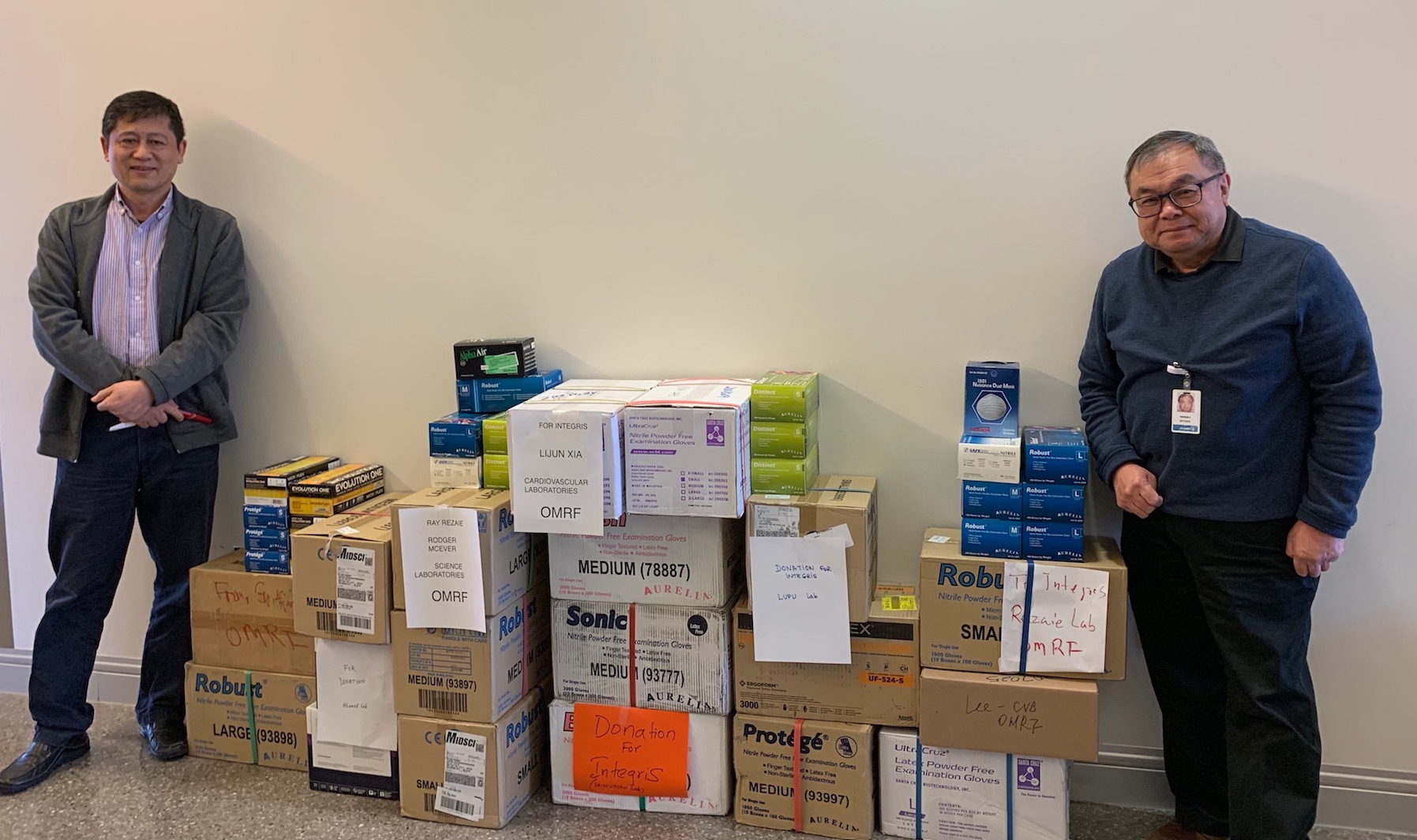OMRF has donated more than 25,000 protective gloves to the Integris Baptist Medical Center. The donation came after Integris officials put out a call for personal protective equipment, or PPE.
Across the state and nation, shortages of PPE have heightened concerns that first responders and medical workers might be at higher risk of contracting the COVID-19 coronavirus and passing it on to patients.
OMRF has suspended most biomedical research during the pandemic. So, researchers joined together to gather spare laboratory supplies, which also included masks and other PPE desperately needed in hospitals, clinics and testing facilities.
“Our scientists reacted immediately to the request,” said OMRF’s Lijun Xia, M.D., Ph.D., who helped spearhead the effort.
“As a medical scientist, I knew that it was essential to get Integris staff sufficiently equipped so they could help patients in Oklahoma,” said Xia. “When I heard their supplies were running low, I was really concerned and wanted to contribute as quickly and as much as possible.”
OMRF healthcare providers continue to treat patients in the foundation’s rheumatology and multiple sclerosis centers. “So, it’s vital that we still retain adequate supplies to protect caregivers and patients when they visit,” said OMRF President Stephen Prescott, M.D. “But this is a crisis, and if we can help other medical professionals who are risking their lives by sharing part of our inventory, we will.”
In addition to the PPE donation, OMRF scientists are teaming with the University of Oklahoma Health Sciences Center in an emergency effort to process COVID-19 tests. Led by Joel Guthridge, Ph.D., a team of OMRF scientists is temporarily relocating to OU Medicine, where they will operate a high-speed polymerase chain reaction system OMRF has moved there temporarily, as well as a new robot OMRF has purchased to help accelerate testing.
The goal of the effort is to increase the state’s testing capacity. When fully operational, OMRF and OUHSC scientists hope the facility will be able to process up to several thousand tests a day.
“Experts say Oklahoma’s numbers will increase dramatically when more testing becomes available,” said Prescott, a physician and medical researcher. “The sooner we can get our arms around the true magnitude of this health crisis, the better we’ll be able to fight it.”
Testing will also help those worrying about whether they’ve contracted COVID-19. “Knowing whether you have the virus could improve your chances of recovery,” said Prescott, “and aggressive quarantine measures can save others from contracting it.”



